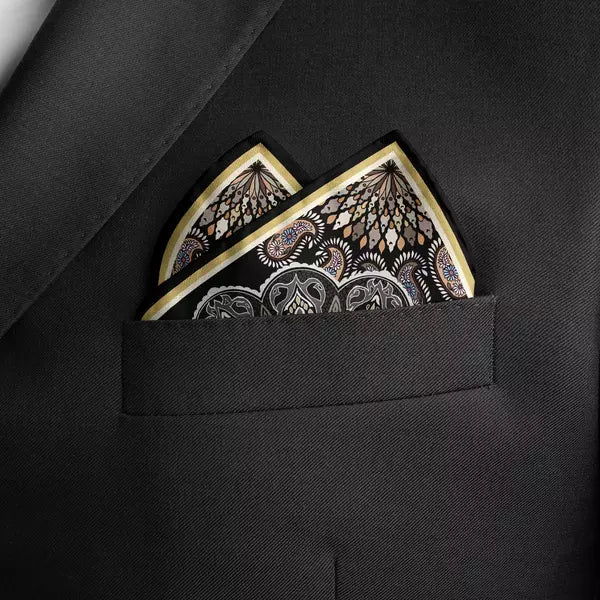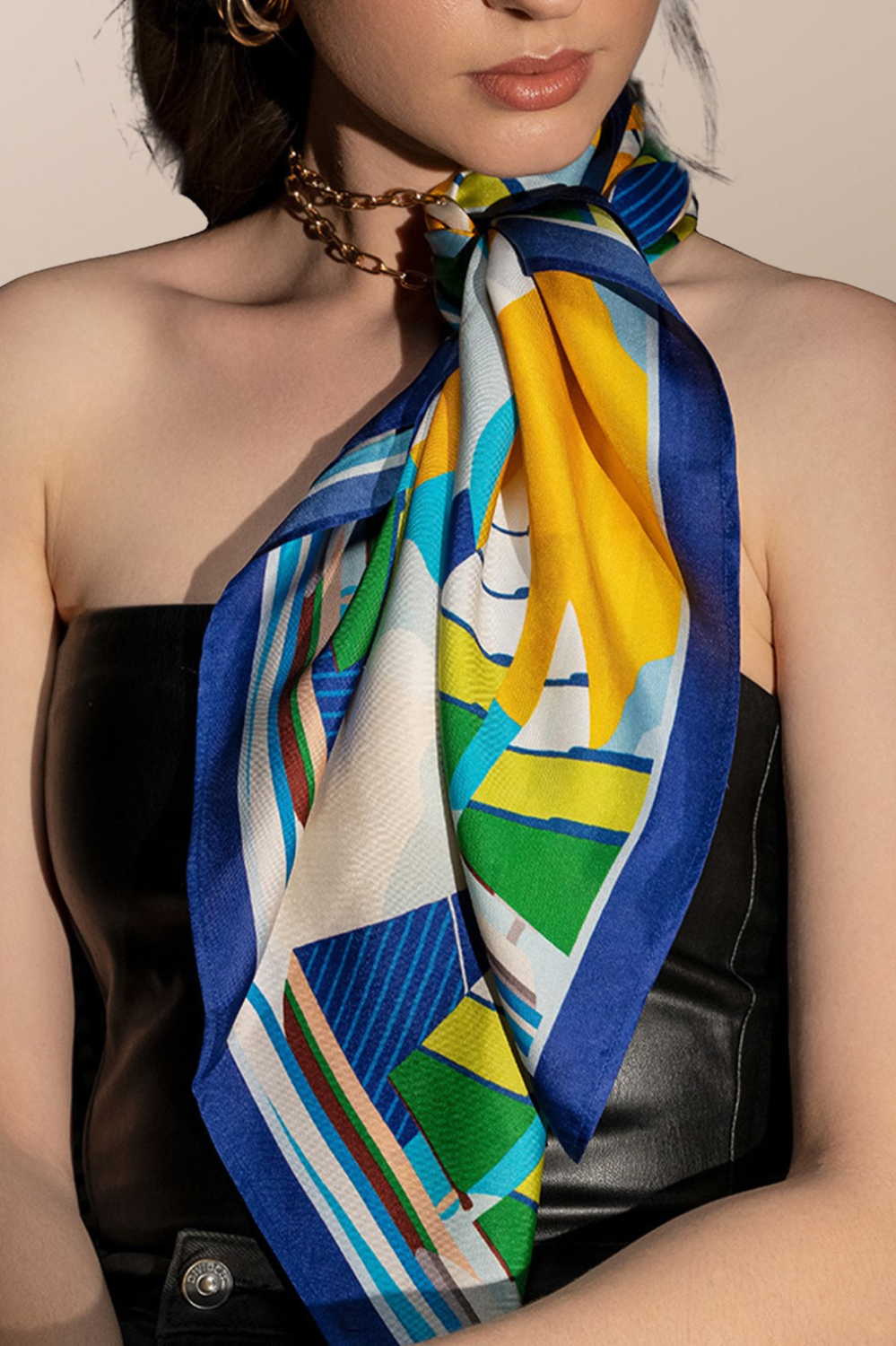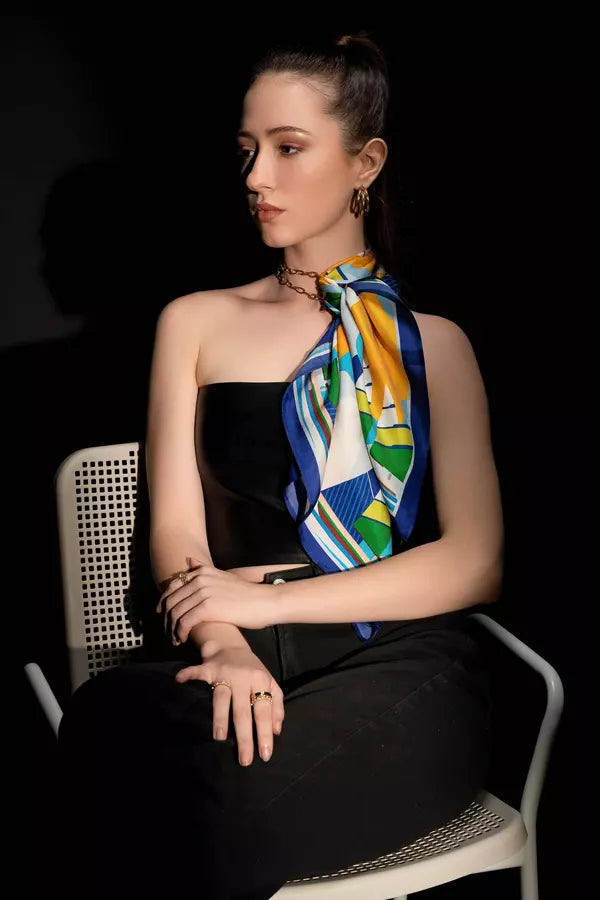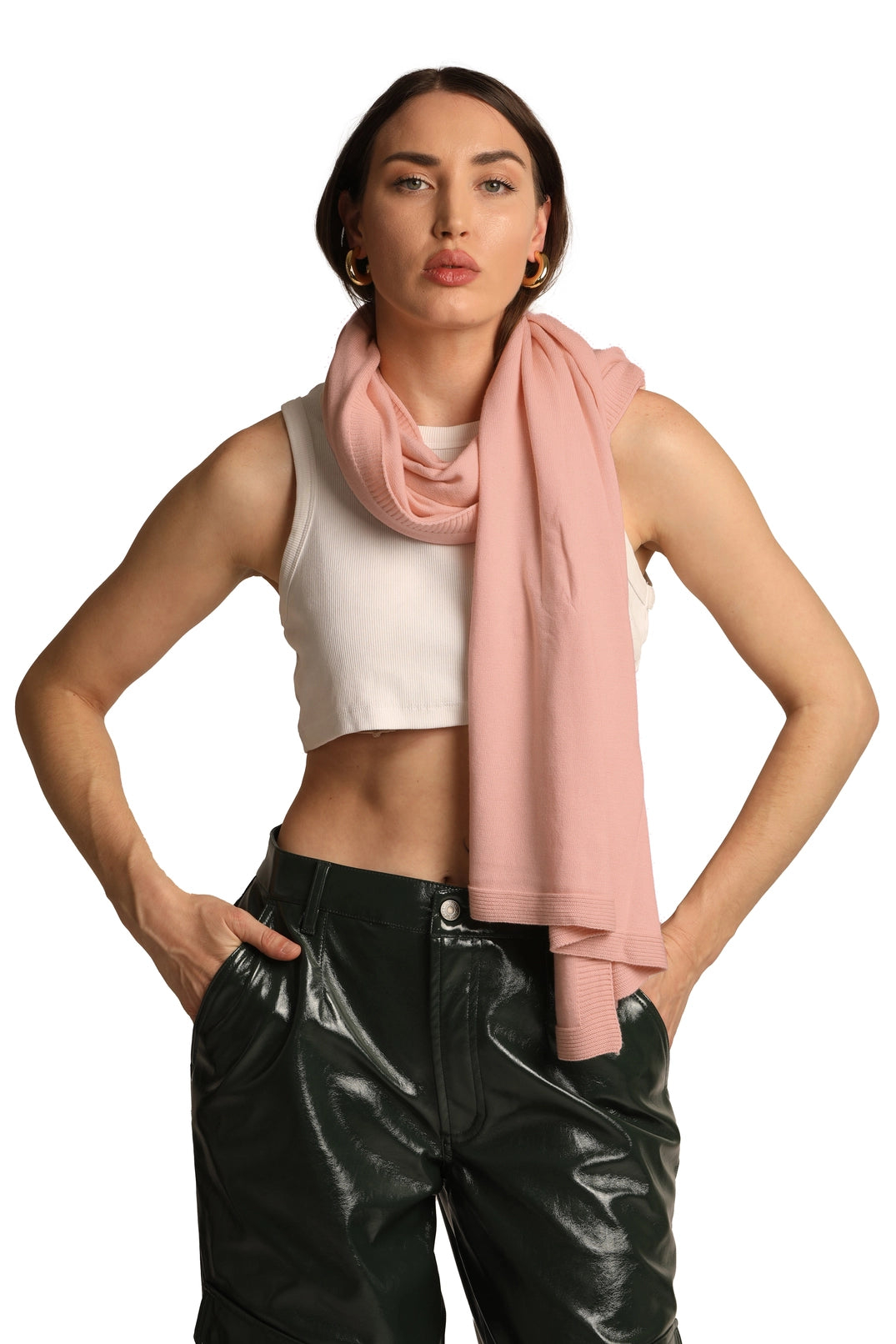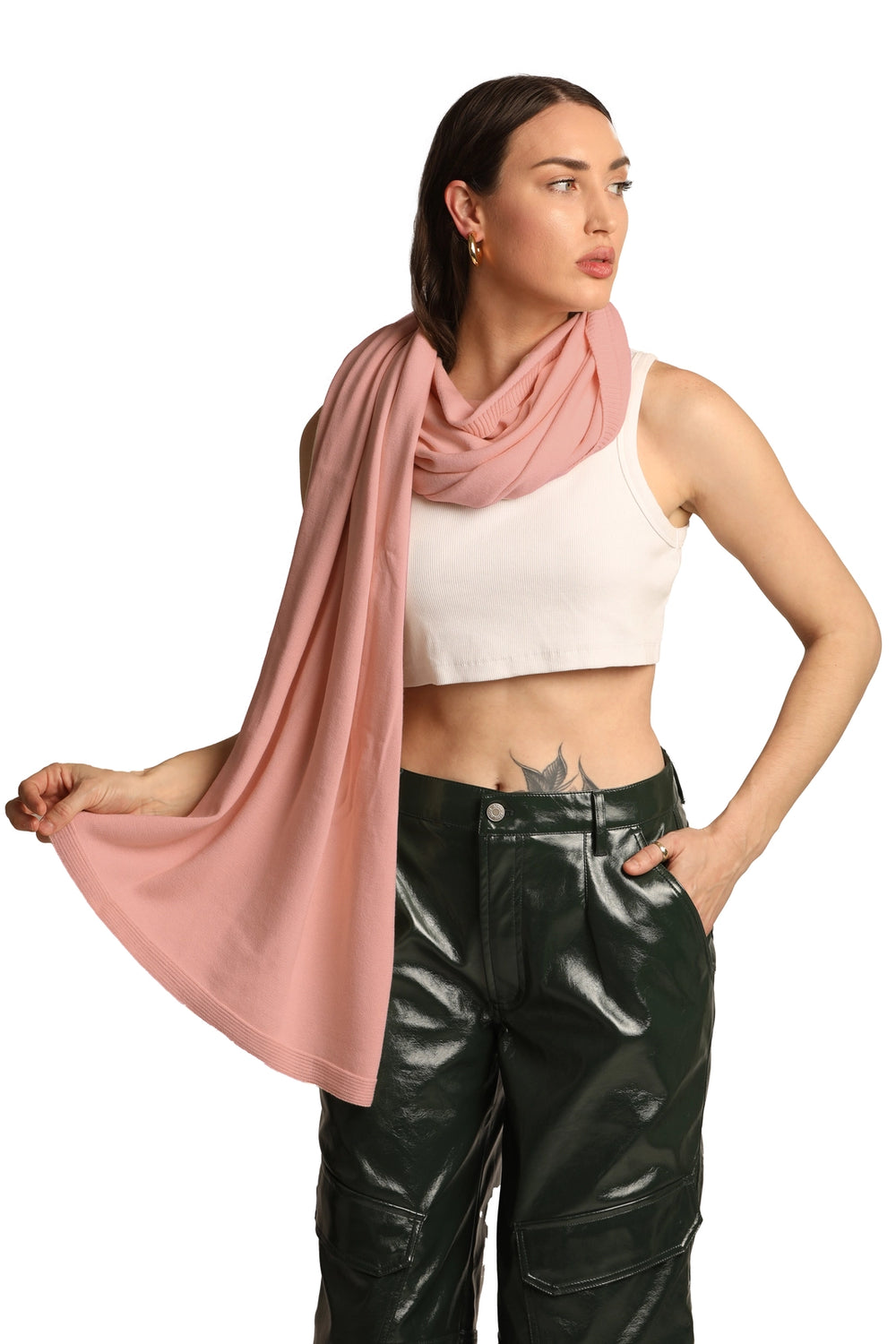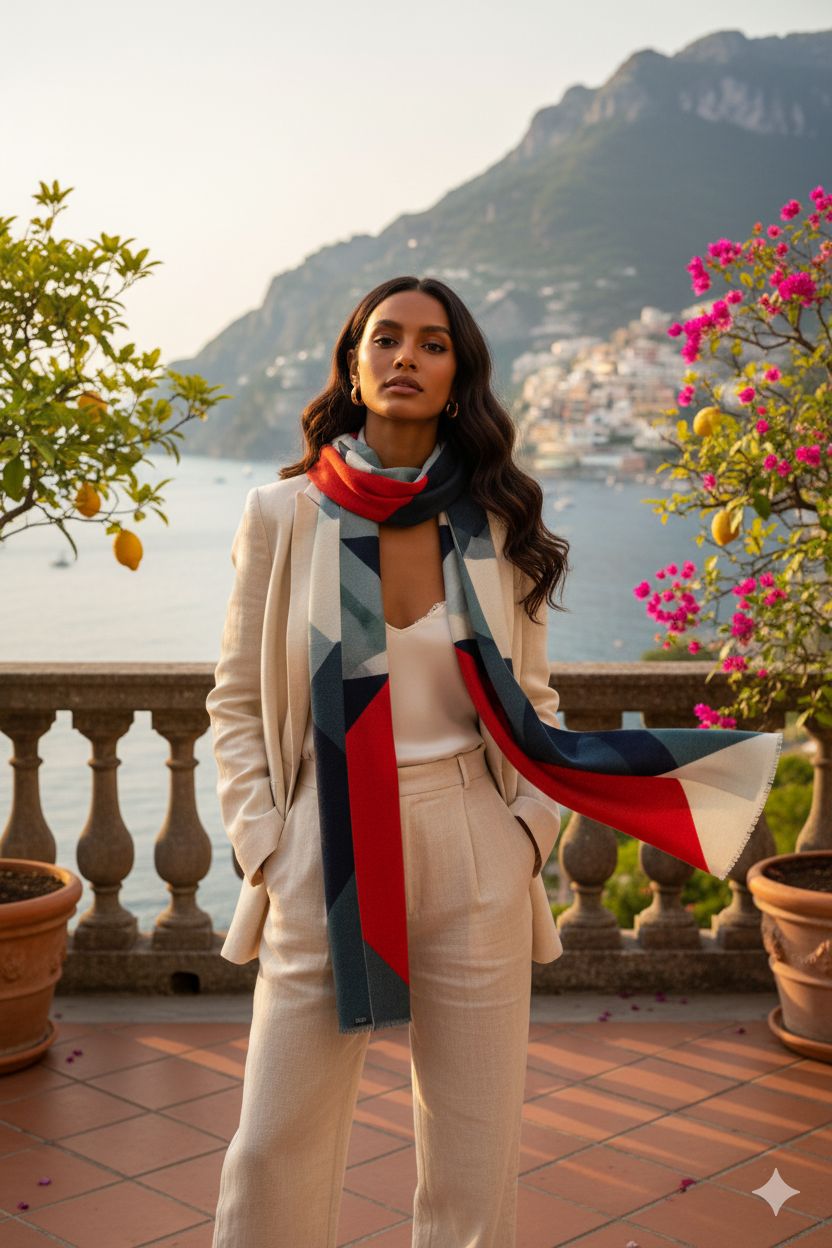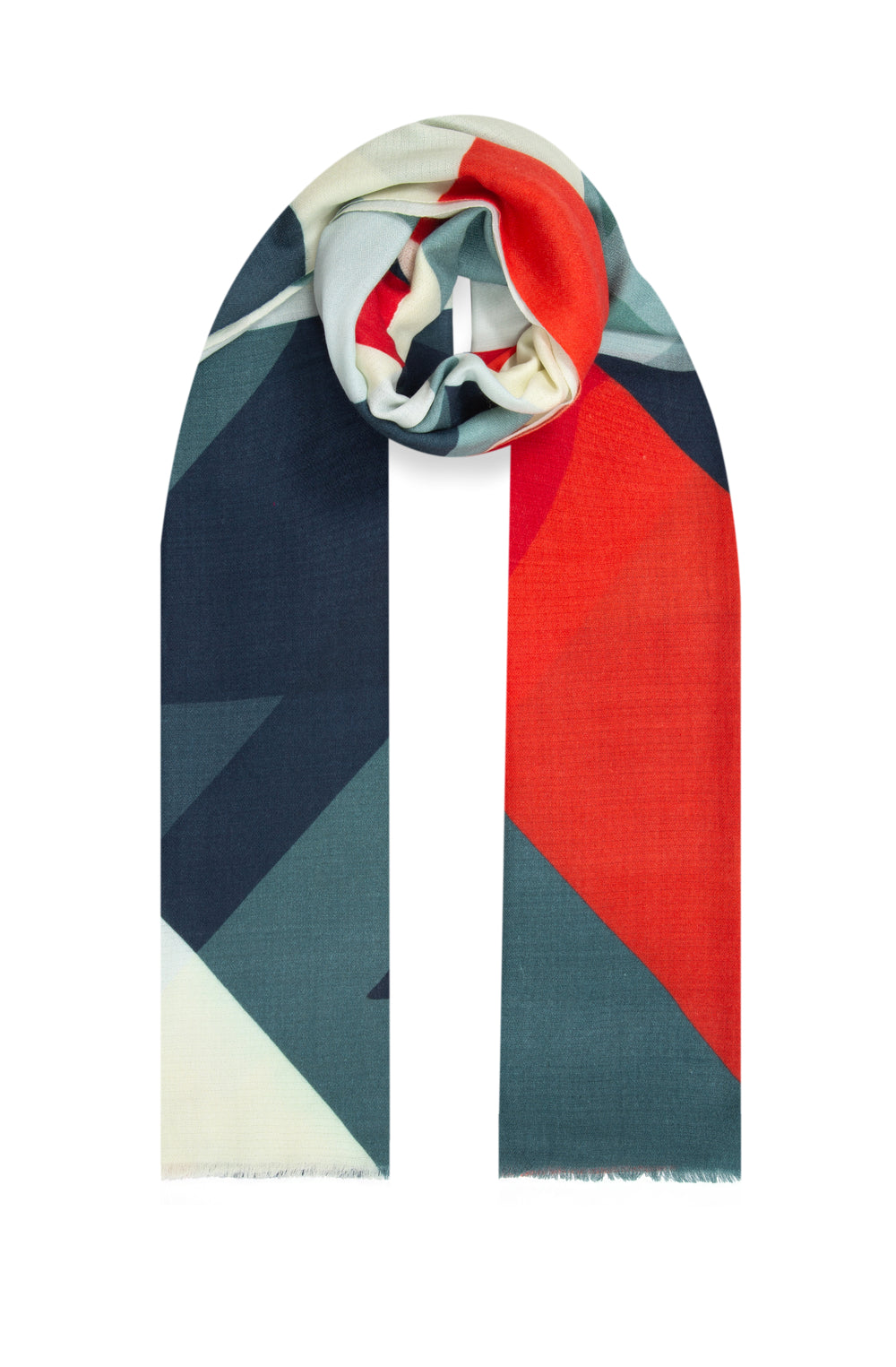Effortless Glamour: Enhance Your Evening Attire with Shawls
The Art of Shawl Styling

Shawls have been a fashion favorite for ages, blending practicality with a touch of elegance. To really get why they're so loved, let's take a quick trip through their history and see how their styles have changed over the years.
History of Shawls
Shawls kicked off in 14th century Persia, made from Kashmiri goat hair. Persia, being a trade hotspot, helped spread shawls to southern Europe and North Africa. Ethiopians went for big rectangular shawls, while Spain fell in love with Manila shawls in the 15th century ( Roving Crafters).
By the 19th century, shawls were a status symbol in Europe, a must-have for the wealthy. The trend went global, with India's Kashmir region becoming famous for its top-notch shawls made from Kashmiri goat wool, featuring intricate designs by skilled artisans ( Singhvis).
Evolution of Shawl Styles
Shawls have kept up with the times, changing with fashion trends. In the 1920s, lighter fabrics like silk and chiffon became the rage, making shawls perfect for any season and outfit. This made them a go-to for both style and practicality, keeping them in vogue even today.
Modern shawls aren't just about looking good; they keep you warm on chilly days and can be used for religious or cultural events. You can pick fabrics like silk or cotton depending on the season, ensuring you stay comfy and stylish. Shawls can be worn in many ways: draped over the shoulders for a classic look, wrapped around the neck, or as a cover-up for dresses or swimsuits ( Singhvis).
If you're thinking about adding shawls to your evening wardrobe, check out options like luxury shawls or merino shawls for that extra touch of elegance. Whether you're heading to formal events or special occasions, shawls are a versatile and stylish addition to any outfit.
Luxurious Shawl Materials
Looking for the perfect shawl to jazz up your evening wear? Let's break down the top-notch materials that make each shawl unique. We’ll dive into four premium options: Pashmina, Silk, Alpaca, and Linen.
Pashmina
Pashmina shawls are the epitome of softness and warmth. Made from the cashmere wool of the pashmina goat, these shawls are lightweight and versatile, perfect for those chilly nights. But hey, handle with care—these beauties are delicate.
| Feature | Description |
|---|---|
| Material | Cashmere wool |
| Characteristics | Soft, lightweight, warm |
| Care | Needs special care |
| Ideal For | Chilly temperatures, formal events |
Silk
Silk shawls scream luxury and elegance, making them a go-to for evening wear. Made from the cocoons of mulberry silkworms, silk shawls come in various types like Silk Satin, Charmeuse, Chiffon, and Georgette, each with its own flair ( Elizabetta). Just remember, they’re delicate, so treat them gently.
| Feature | Description |
|---|---|
| Material | Natural protein fiber |
| Characteristics | Luxurious, timeless, delicate |
| Ideal For | Formal events, elegant dinners |
Alpaca
Alpaca shawls, made from alpaca wool, are known for being warm, soft, lightweight, and hypoallergenic. They’re perfect for winter but can be a bit pricey and need special washing care. If you’re after something luxurious and sustainable, alpaca is your friend.
| Feature | Description |
|---|---|
| Material | Alpaca wool |
| Characteristics | Warm, soft, lightweight, hypoallergenic |
| Care | Needs special care |
| Ideal For | Winter wear, formal events |
Linen
Linen shawls, crafted from flax fibers, are breathable and cool, making them perfect for warm weather. Sure, they wrinkle easily, but that just adds a touch of sophistication. Linen shawls are great for summer nights or outdoor events.
| Feature | Description |
|---|---|
| Material | Flax fibers |
| Characteristics | Breathable, cool, sophisticated |
| Ideal For | Warm weather, outdoor events |
Knowing the unique qualities of these luxurious shawl materials helps you pick the perfect one to elevate your evening look. Whether you’re into the cozy warmth of alpaca, the timeless elegance of silk, the versatile charm of pashmina, or the breezy comfort of linen, there’s a shawl for every occasion and style. For more tips on choosing the right shawl, check out our guides on luxury shawls and sustainable shawls.
Styling Tips for Evening Wear
Want to jazz up your evening outfit? Shawls are your secret weapon. They can turn a simple dress into a showstopper. Here’s how to rock a shawl for your next night out.
Color Coordination
Picking the right shawl color can make or break your look. Forget about matching everything perfectly. Instead, think about colors that vibe well together. For example, an ombré silk wrap that fades from one color to another can add a splash of artistry to your outfit.
If your dress has patterns, go for a shawl with a matching pattern or a solid color that picks up one of the hues in your dress. This keeps things balanced without going overboard.
| Outfit Color | Shawl Color |
|---|---|
| Black | Red, Gold, Silver |
| Red | Black, Gold, Ivory |
| Blue | Silver, White, Light Grey |
| Green | Gold, Brown, Beige |
Need more ideas? Check out our shawls for formal events page.
Accessorizing with Shawls
Accessories can make or break your look. When picking a shawl, think about the jewelry and shoes you’ll wear. This helps you pull everything together.
- Silver Jewelry: Looks fab with grey or silver shawls.
- Gold Accessories: Shine with gold or warm-toned shawls.
- Pearls: Perfect with an ivory or pastel silk chiffon wrap.
Matching your shawl with your accessories can make your outfit pop ( Elizabetta).
For more tips, check out our articles on shawls for cocktail parties and shawls for elegant dinners.
Follow these tips, and your shawl will not just complement your evening wear but also add a touch of luxury to your look.
Shawls for Men
Shawls aren't just for women; men can rock them too. Whether draped over the shoulders or styled in unique ways, shawls add a touch of class and warmth to any outfit. Let's dive into how men can confidently wear shawls and look stylish doing it.
Why Shawls?
Shawls aren't just about looking good; they're practical too. Men have worn them for ages, from the serapes in Mexico to the lace shawls in Europe during the 1800s. Today, shawls are still a versatile accessory, perfect for adding warmth and a bit of flair to your look.
Shawls are great for outdoor events, religious sites, or cultural gatherings where you need a bit more coverage or warmth (Singhvis). They're also a smart choice for chilly weather, making them a go-to for winter or fall.
How to Wear Shawls
Here are some cool ways to wear shawls that can elevate your evening attire:
-
Draped Over the Shoulders: For a classic vibe, just drape the shawl over your shoulders, letting it hang evenly on both sides. This look is perfect with formal wear, adding a touch of sophistication to suits or tuxedos.
-
Wrapped Around the Neck: For a more laid-back yet stylish look, wrap the shawl around your neck like a scarf. It not only keeps you warm but also adds some texture and depth to your outfit.
-
As a Cover-Up: Throw the shawl over a shirt or sweater for a relaxed, comfy look. This is great for layering during colder months and pairs well with jeans or trousers.
-
Tucked Under a Blazer: For a modern, chic look, tuck one end of the shawl under a blazer or coat. This creates a polished appearance, perfect for business casual settings or fancy dinners.
| Shawl Style | Best Paired With | Suitable For |
|---|---|---|
| Draped Over the Shoulders | Suit, Tuxedo | Formal Events, Elegant Dinners |
| Wrapped Around the Neck | Casual Outfits | Casual Wear, Outdoor Events |
| As a Cover-Up | Shirt, Sweater | Winter, Travel |
| Tucked Under a Blazer | Blazer, Coat | Business Casual, Special Occasions |
Experiment with these styles to find what works best for you. Whether you're heading to a formal event or a casual gathering, shawls are a versatile and luxurious accessory that can elevate any outfit. For more ideas and tips, check out our collection of luxury shawls and merino shawls.








